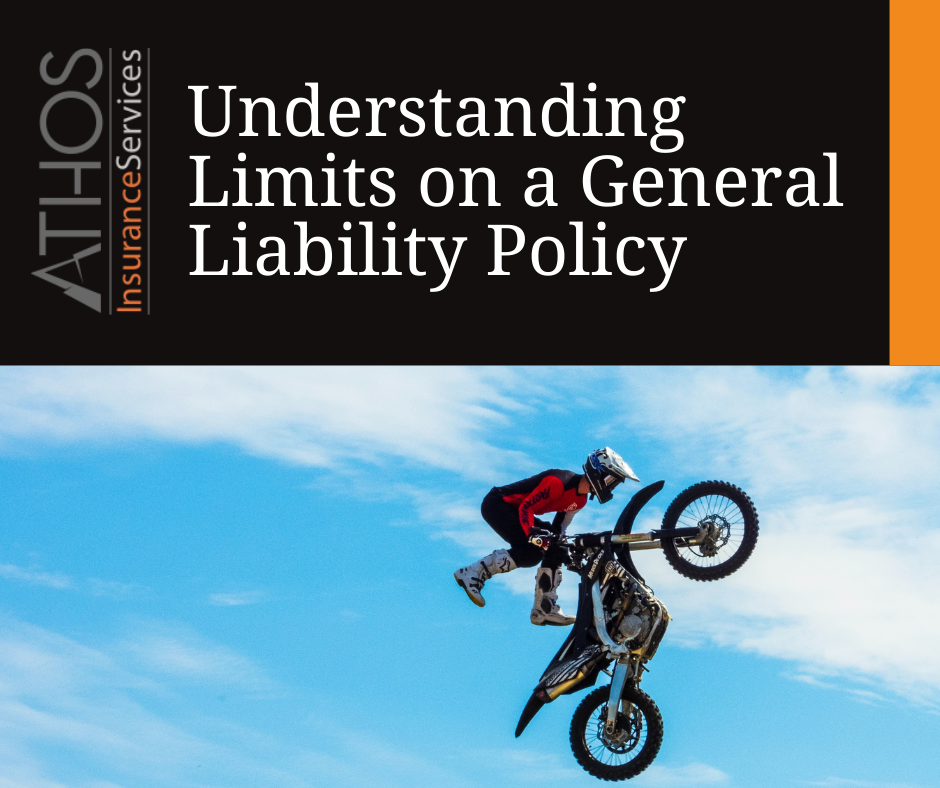Understanding Limits on a General Liability Policy
By: Christina Lam
Published on: 11/18/2021 2:47:00 PM
Ah, there’s nothing like the feeling of a fresh insurance policy. Knowing you’re covered makes you feel almost…invincible! You can do anything in the world. But, just wait. Before you get too excited and do something crazy, there are some limits on a general liability policy.
In this post, we’ll go over what those limits are, and more importantly, what they mean for you, so you can feel confident that you’re choosing the best policy for your needs. General liability policies usually include the following 6 limits: General Aggregate, Products/Completed Operations, Personal and Advertising Injury, Each Occurrence, and Fire Damage. So, what do these limits mean? Let’s dive in!
The General Aggregate limit is the maximum amount the insurance carrier will pay during the policy period. So, if the general aggregate limit is $15,000, that’s the most you’re going to get if something (or multiple things) go wrong!
Photo by Gordon Cowie on Unsplash
Products/Completed Operations is a limit on coverage for liability arising out of your products or business operations once those operations have been completed or abandoned. Let’s say you make a toy for three years and then you close down your company to spend more time playing with these wonderful toys. Now let’s say that someone trips on one of those toys and wants to sue the company for making the toys so trippable. The insurance policy isn’t going to cover this lawsuit because there is no insurance policy. Why? Because there’s no more company!
Personal & Advertising Injury is a limit on coverage for certain offenses that you or your employees may commit in the course of your business, such as libel, slander, disparagement, or copyright infringement in your advertisements. These are things that your business could be sued for. Most policies limit how much the insurance provider will pay to defend against these suits. So this is important to know when purchasing a policy, and also important to keep in mind when deciding whether to libel, slander, disparage, or infringe on someone’s copyright! We’ll give you a tip– try to avoid it!
Each Occurrence is the maximum amount the insurance carrier will pay per claim submitted during the policy period. So for one incident or claim, insurers will usually have a limit on how much they will cover. This is an important bit of info to know when choosing a policy, because you’ll want to make sure it’s an amount that matches your risks.
A Fire Damage limit is for coverage for liability for damage by fire to your rented premises. Basically, if you have a business location or set, and you burn it down, there is a limit to how much of it will be covered by your policy. These limits apply per-fire, so multiple different fires would not fall under the same limit. But at the same time, if there are multiple fires at the same property, you have some bigger things to look into that don’t involve insurance policies!
Photo by Wilhelm Gunkel on Unsplash
Usually, when you’re looking for a policy that fits your needs, the two most important considerations are the general aggregate and the each occurrence. You’ll really want to take a look at those, and make sure that there’s enough coverage for the things that could go wrong on set, or at your business location.
Sometimes, you’ll be required to have insurance with a certain limit. So, if your policy doesn’t meet those requirements, you’ll need to set up an excess or umbrella liability policy, which provides additional coverage to supplement an existing policy. You’ll typically need one of these to meet higher insurance requirements.
If you need insurance for a production, call Athos! Our friendly and experienced agents are ready to help. We’ll look over insurance requirements to make sure you’re getting the coverage you need, and we’ll walk you through the process. There may be a limit to a general liability policy, but there’s no limit to how much time and care our agents will spend guiding you to the right one!
